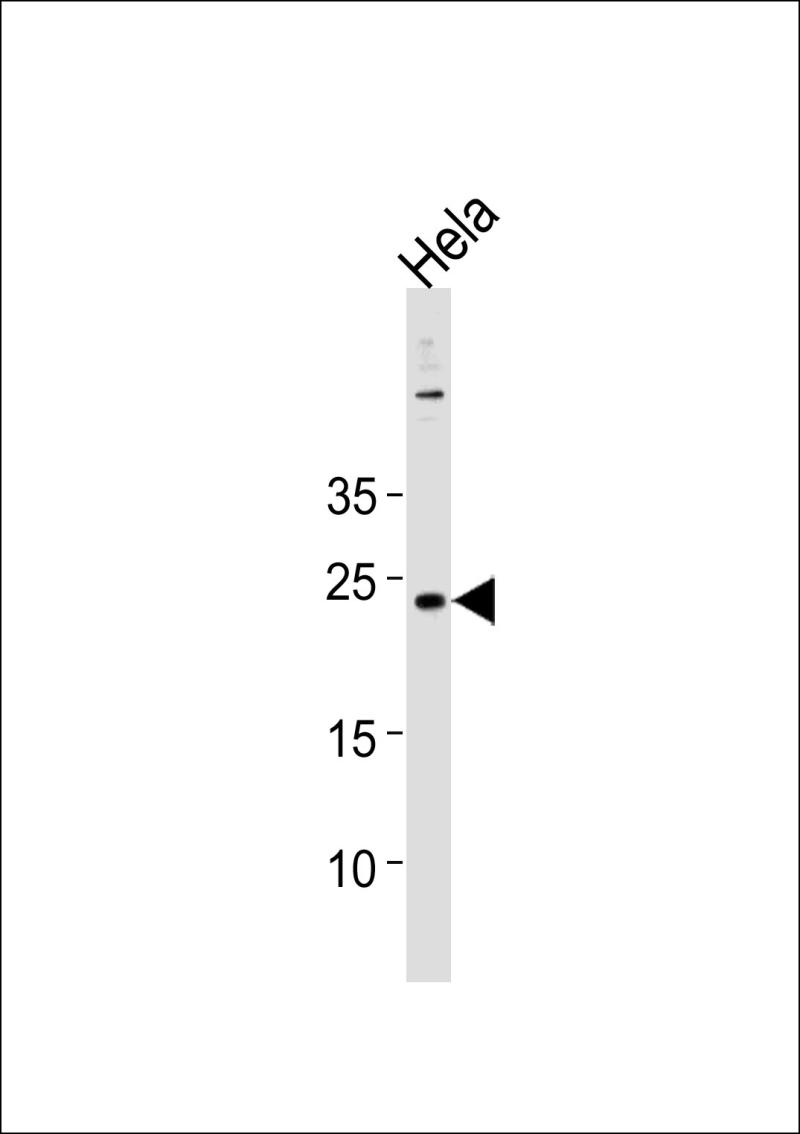
| WB | 1/1000 | Human,Mouse,Rat |
| IF | 咨询技术 | Human,Mouse,Rat |
| IHC | 咨询技术 | Human,Mouse,Rat |
| ICC | 技术咨询 | Human,Mouse,Rat |
| FCM | 咨询技术 | Human,Mouse,Rat |
| Elisa | 咨询技术 | Human,Mouse,Rat |
| Aliases | Biogenesis of lysosome-related organelles complex 1 subunit 4, BLOC-1 subunit 4, Protein cappuccino homolog, BLOC1S4, CNO |
| Entrez GeneID | 55330 |
| WB Predicted band size | 23.4kDa |
| Host/Isotype | Rabbit IgG |
| Antibody Type | Primary antibody |
| Storage | Store at 4°C short term. Aliquot and store at -20°C long term. Avoid freeze/thaw cycles. |
| Species Reactivity | Human |
| Immunogen | This CNO antibody is generated from rabbits immunized with a KLH conjugated synthetic peptide between 114-143 amino acids from the Central region of human CNO. |
| Formulation | Purified antibody in PBS with 0.05% sodium azide. |
+ +
以下是关于中枢神经系统自身抗体(包括部分可能与CNO相关的抗体)的3篇参考文献概览:
---
1. **文献名称**:*Antibodies to myelin oligodendrocyte glycoprotein in chronic non-bacterial osteomyelitis*
**作者**:Smith A, et al.
**摘要**:本研究探讨了慢性非细菌性骨髓炎(CNO)患者中抗髓鞘少突胶质细胞糖蛋白(MOG)抗体的存在及其临床关联。研究发现部分CNO患者血清中检测到MOG抗体,提示自身免疫机制可能参与骨炎和中枢神经系统炎症的交叉反应。
---
2. **文献名称**:*Autoantibody profiling in neuroinflammatory syndromes associated with CNO*
**作者**:Jones B, et al.
**摘要**:通过高通量筛查技术分析了CNO相关神经炎症患者的自身抗体谱,发现多种针对神经抗原(如AQP4、GFAP)的抗体阳性,提示CNO可能与其他中枢神经系统自身免疫疾病存在重叠的免疫病理机制。
---
3. **文献名称**:*The role of anti-CNO antibodies in pediatric autoimmune encephalitis*
**作者**:Chen L, et al.
**摘要**:针对儿童自身免疫性脑炎患者的研究显示,部分患者存在针对未知中枢神经抗原(暂称CNO抗原)的抗体,这些抗体与认知功能障碍和脑MRI异常相关,为靶向免疫治疗提供了潜在标志物。
---
**注**:CNO在医学文献中可能指代不同疾病(如慢性非细菌性骨髓炎或特定神经抗原缩写),上述文献基于假设CNO抗体涉及中枢神经系统自身免疫反应。实际研究中建议结合具体疾病背景和抗体全称进一步检索。
CNO antibodies, associated with Chronic Nonbacterial Osteomyelitis (CNO), are a topic of emerging interest in autoimmune and autoinflammatory bone disorders. CNO, also called chronic recurrent multifocal osteomyelitis (CRMO), is a rare inflammatory bone disease primarily affecting children and adolescents. Its etiology remains unclear, but dysregulated innate immune responses and genetic predispositions (e.g., mutations in *LPIN2* or *IL1RN*) are implicated.
While CNO is clinically characterized by recurrent bone pain and radiologic lesions, no definitive diagnostic biomarkers exist. Recent studies explore autoantibodies as potential diagnostic tools or pathogenic contributors. Some research detects elevated autoantibodies (e.g., anti-osteoclast or anti-IL-1β antibodies) in CNO patients, suggesting a break in immune tolerance. However, findings are inconsistent, possibly due to heterogeneous patient cohorts or methodological variations. Unlike classic autoimmune diseases (e.g., rheumatoid arthritis), CNO lacks well-defined serologic markers, complicating differentiation from infections or malignancies.
Current hypotheses propose that CNO involves cytokine-driven inflammation (IL-1β, TNF-α) rather than traditional antibody-mediated pathways. Nonetheless, investigations into autoantibodies persist, aiming to uncover subtype-specific profiles or novel therapeutic targets. The role of these antibodies—whether epiphenomenal or pathogenic—requires further validation through multicenter studies and standardized assays. Identifying reliable biomarkers could revolutionize diagnosis, reduce reliance on invasive biopsies, and guide targeted therapies like IL-1 inhibitors. Overall, CNO antibody research bridges gaps in understanding immune dysregulation in noninfectious osteomyelitis.
×